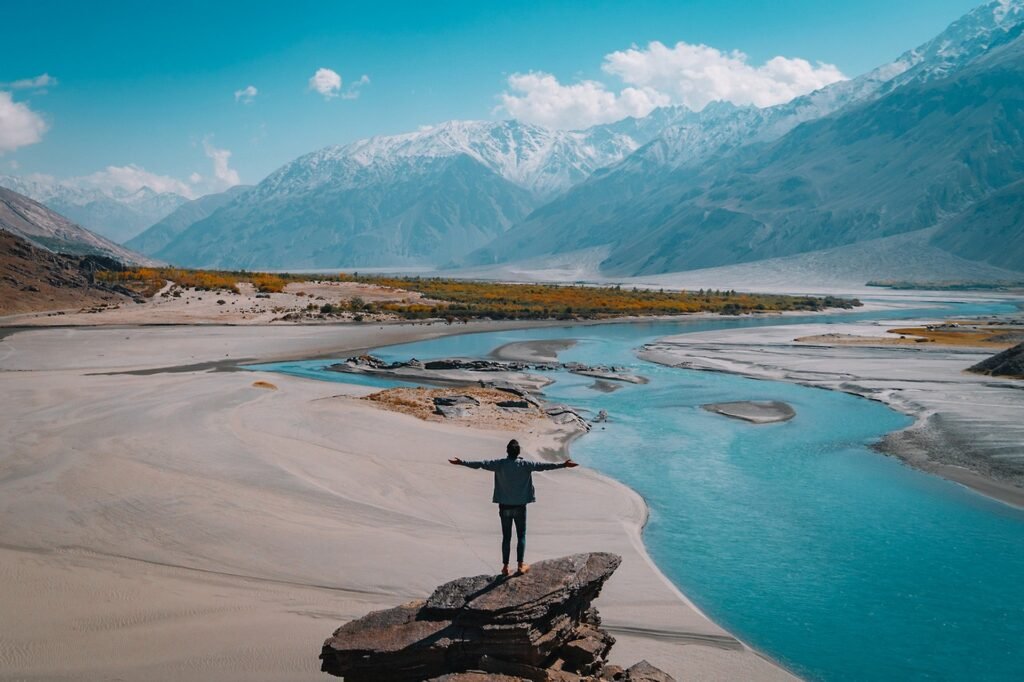
Planning a trip can be both exhilarating and overwhelming. From choosing the destination to organizing the logistics, there’s a lot to consider to ensure a smooth and enjoyable adventure. If your going as a family it can sometimes be even more difficult. Whether you’re a seasoned traveler or a first-time explorer, these five essential travel tips will help streamline your planning process and set you up for a memorable journey.
1. Smart Packing Strategies
Packing for a trip can sometimes feel like a daunting task, but with a few smart strategies, you can make the process seamless and stress-free. The cornerstone of efficient packing is, undoubtedly, a well-thought-out packing list. Creating a packing list helps ensure that you bring everything you need without overpacking. It also helps you to prioritize essential items and reduce the likelihood of forgetting something important.
Packing efficiently can make a huge difference in your travel experience. Aim to pack only the essentials to avoid overloading your luggage and simplify your journey. Here are some packing tips:
Choose versatile clothing:
When it comes to clothing, versatility is key. Opt for pieces that can be easily mixed and matched, allowing for multiple outfit combinations with fewer items. Layering clothing can also help you adapt to varying weather conditions without needing to pack bulky, single-use garments. Items such as lightweight jackets, scarves, and neutral-colored tops and bottoms are particularly useful.
Use packing cubes:
Packing cubes are another excellent tool to maximize suitcase space and keep your belongings organized. By compartmentalizing your clothes into cubes, you can easily locate specific items and maintain order throughout your trip. These cubes also offer the added benefit of compressing your clothing, leaving you more room for other essentials.
Roll don’t fold:
We’ve all seem the video’s! Rolling rather than folding can reduce wrinkles and save space. Here’s the science; rolling clothes for packing saves space primarily due to the way it minimizes air pockets and allows for a more efficient use of the available volume. This makes it possible to pack more items in the same suitcase or to use a smaller suitcase for the same amount of clothing.
Remember the basics:
Essentials like a good pair of walking shoes, a lightweight rain jacket, and a travel-sized first aid kit are must-haves.
It’s crucial to pack essential items in your carry-on bag. Important documents, medications, basic toiletries, electronics, and a change of clothes should always be within easy reach. In case your checked luggage is delayed, this preparation ensures that you have what you need to remain comfortable and continue your journey without unnecessary disruptions.
Importantly, remember that packing light has numerous benefits. It not only helps you avoid extra baggage fees but also makes it easier to move through airports, public transportation, and hotel lobbies. A lighter suitcase is easier to manage and contributes to a less stressful travel experience.
By integrating these smart packing strategies into your travel preparation routine, you can ensure a smoother, more enjoyable adventure from start to finish.
Check out travel essentials on Amazon!
Ready to embark on your next adventure? Don’t forget to gear up with all the essentials! From durable luggage to travel-sized toiletries, Amazon has everything you need to make your trip smooth and stress-free. Explore our top travel picks and start packing for your journey today!
2. Budgeting for Your Trip
Creating a comprehensive travel budget is crucial to ensuring a stress-free adventure that aligns with your financial situation. Begin by estimating the core expenses: transportation, accommodation, meals, activities, and souvenirs. Transportation costs may include flights, trains, car rentals, or public transit fares. To find the best deals, consider booking in advance or using comparison websites.
However, flexibility is key. Prices can fluctuate, and unexpected expenses may arise. Allocate a buffer in your budget for unforeseen costs, and be prepared to adjust your plans if necessary. Consider using a travel rewards credit card to earn points or cashback on your purchases, which can further help manage your expenses.
For accommodation, research a variety of options, from hotels and hostels to vacation rentals and staying with friends or family. Websites and apps that compare accommodation prices can help you secure the best rates. Don’t overlook alternative lodging options like house swapping or couchsurfing, which can significantly cut costs.
Next, allocate a budget for daily meals. Factor in the cost of dining out versus buying groceries and cooking. Many cities offer affordable local eats that can provide an authentic experience without breaking the bank. Don’t forget to include any special dining experiences or splurges you might want to enjoy.
When planning activities, look for free or low-cost options such as walking tours, museums with free admission days, and outdoor attractions. Additionally, investing in city passes or discount cards can offer substantial savings on popular tourist attractions, transportation, and dining.
Setting a daily spending limit can help you stay on track. While on your trip, make use of apps and tools like Trail Wallet, Splitwise, or Expensify to monitor and categorize your expenses in real-time. These tools can provide insights into your spending habits and help adjust your budget as needed.
Traveling during the off-season is another effective way to save money. Not only can you benefit from reduced prices on accommodations and flights, but you’ll also face fewer crowds.
3. Finding the Best Flight Deals
When planning your next adventure, securing affordable flights can significantly impact your budget. One of the most effective ways to find cheap flights is by using flight comparison websites. Platforms such as Skyscanner, Google Flights, and Kayak aggregate fares from various airlines, allowing you to compare prices, durations, and routes seamlessly. By exploring these websites, you can ensure that you are not overpaying for your flight tickets.
Price alerts:
Another invaluable tip is to set up fare alerts. Most flight comparison websites and airline applications offer this feature. By registering for fare alerts, you will receive notifications whenever prices drop for the route you are interested in. This strategy allows you to pounce on the best deals as soon as they become available, maximizing your chances of securing affordable fares.
Reward programs:
Frequent flyers can also benefit significantly from airline rewards programs. These programs often offer exclusive discounts, early access to sales, or the ability to redeem points for flights. By accumulating miles or points, you can often book flights at a fraction of the cost. It’s worth exploring if any credit card offers reward points that can be used towards flights, as this can further enhance your savings.
Timing is key:
Timing is a crucial element when booking flights. While booking early can often result in lower prices, there are instances where waiting for last-minute deals might yield significant savings. Flexibility with your travel dates and times can also enhance your chances of securing cheaper flights. Mid-week flights, for instance, are often less expensive than those over weekends.
Consider nearby airports:
Consider flying out of, or into, alternative airports. Smaller or regional airports may offer better deals compared to major hubs. Additionally, exploring lesser-known budget airlines can result in substantial savings, though it’s important to factor in any additional fees that might apply.
Alternative transport:
As an alternative, it’s worth considering other forms of transportation such as trains or buses, especially for shorter distances. These modes of transport can offer competitive pricing and added convenience, making them a practical option for budget-conscious travelers.


4. Choosing the Right Accommodation
When planning any adventure, selecting the right accommodation is pivotal to ensuring a comfortable and enjoyable stay. The market today presents a myriad of lodging options, each catering to different needs and budgets. Hotels, for instance, are often favored for their consistent service and amenities, ranging from daily housekeeping to on-site dining. However, they can be on the pricier side, especially in high-demand areas.
On a budget:
For budget-conscious travelers, hostels provide a more economical alternative. They’re particularly popular among solo backpackers and offer the bonus of communal spaces, which can help in meeting fellow travelers. On the downside, hostels often mean shared rooms and bathrooms, which might not appeal to those seeking more privacy.
Couchsurfing stands out as the most budget-friendly option, allowing travelers to stay with locals for free. This can lead to enriching cultural exchanges and a more immersive experience. However, it does come with its own set of challenges, including varying standards of living and potential security concerns.
Rentals:
Vacation rentals, such as those found on platforms like Airbnb, offer a middle ground by providing the comfort of a private home along with amenities like kitchens, which can help cut down on dining expenses. The trade-off can be the lack of consistent service and, occasionally, fluctuating quality and reliability.
Book direct:
To make the most of your accommodation budget, consider booking directly through hotel or property websites. This method often helps circumvent additional fees and might provide access to exclusive promotions. Utilizing price comparison tools can unveil hidden deals and show you the best rates available across multiple platforms.
Tip: This also works when booking days out or excursions.
Loyalty pays:
Loyalty programs are another effective strategy for saving money; many hotels and booking websites offer points for each stay, which can be redeemed for free nights or other perks. Additionally, always read reviews from past guests to verify the quality of accommodation. Pay close attention to the cancellation policy to avoid unexpected fees.
Lastly, consider the location and amenities of a lodging option. Proximity to transportation, major attractions, and dining options can significantly enhance your convenience and overall travel experience. Ensure that the available amenities, be it free Wi-Fi, breakfast, or parking, align with your personal needs to maximize comfort.
5. Research and Plan Your Itinerary
A well-planned itinerary ensures you make the most of your time at your destination. Research your destination thoroughly to find out what attractions, activities, and local experiences interest you. Consider the following tips:
Key attractions:
Start by identifying the key attractions, landmarks, and experiences that are must-see or must-do for you. Consider what type of traveler you are—whether you’re interested in historical sites, natural wonders, local cuisine, or cultural events. Once you have your list, organize it by priority. This helps ensure you don’t miss out on the top things you want to experience, even if your time is limited. If your destination has famous sights that tend to get crowded, such as popular museums or monuments, look into advance booking options to secure your spot and avoid long lines. Additionally, research lesser-known attractions or hidden gems that might not be on every traveler’s radar but could offer a unique perspective on the destination.
Don’t get burnt out!
It’s easy to get caught up in the excitement of planning every moment of your trip, but scheduling downtime is crucial for a balanced and enjoyable experience. Overloading your itinerary can lead to burnout, especially if you’re traveling across time zones or packing in a lot of activities each day. Consider setting aside time for spontaneous exploration, relaxation at a café, or simply absorbing the atmosphere of your destination. This also provides flexibility in case you want to revisit a favorite spot or discover something new that wasn’t part of your original plan. Remember, some of the best travel memories come from unplanned moments.
Don’t get burnt out!
Researching local events happening during your visit can greatly enrich your travel experience. Look up festivals, cultural performances, markets, and seasonal activities that may be taking place during your stay. These events offer a glimpse into the local culture and traditions, providing an authentic experience that goes beyond the usual tourist attractions. Participating in or observing these events can make your trip more memorable and give you stories to share long after you return home. Keep an eye on local calendars or tourism websites for updates on events, and consider adjusting your itinerary to include these unique experiences.
On the other hand you may decide you’d rather avoid these times as prices can potentially be inflated and the destination will inevitably be busier.
Bonus. Stay Safe and Connected
Additionally on our essential travel tips is safety. Travel safety is paramount, and staying connected can provide peace of mind and practical benefits. Here are some essential safety tips:
- Register with your embassy: For international travel, register with your country’s embassy or consulate to receive important updates and assistance if needed.
- Keep copies of important documents: Have photocopies of your passport, visa, and other critical documents in case they get lost or stolen.
- Use travel insurance: Invest in travel insurance to cover unexpected events such as medical emergencies, trip cancellations, or lost luggage.
- Stay connected: Ensure you have access to a reliable means of communication. Consider purchasing a local SIM card or an international data plan to stay connected while abroad.
By taking these precautions, you’ll enhance your safety and stay informed, ensuring a smoother and more secure travel experience.
Finally
With careful planning and preparation, your next adventure can be an unforgettable experience. By following these essential tips, you’ll be well-equipped to navigate the complexities of travel and create a journey tailored to your desires. Remember, the key to a successful trip lies in striking a balance between meticulous planning and a willingness to embrace the unexpected. So, what are you waiting for? Start dreaming, planning, and exploring!
Ready to turn your travel dreams into reality? Share your dream destination in the comments below and let us help you start planning your next adventure.
*As an Amazon Associate, I earn commission from qualifying purchases.


